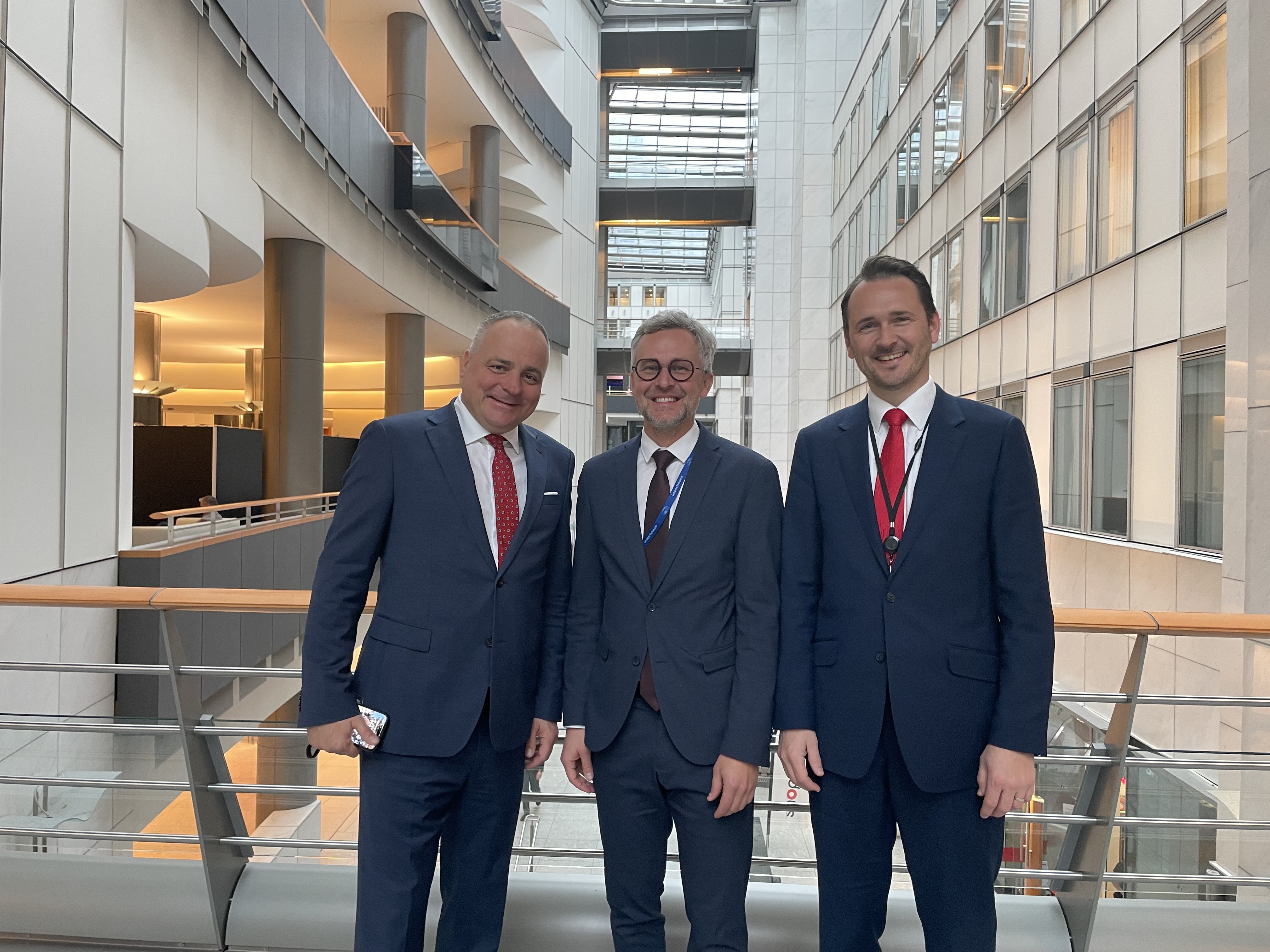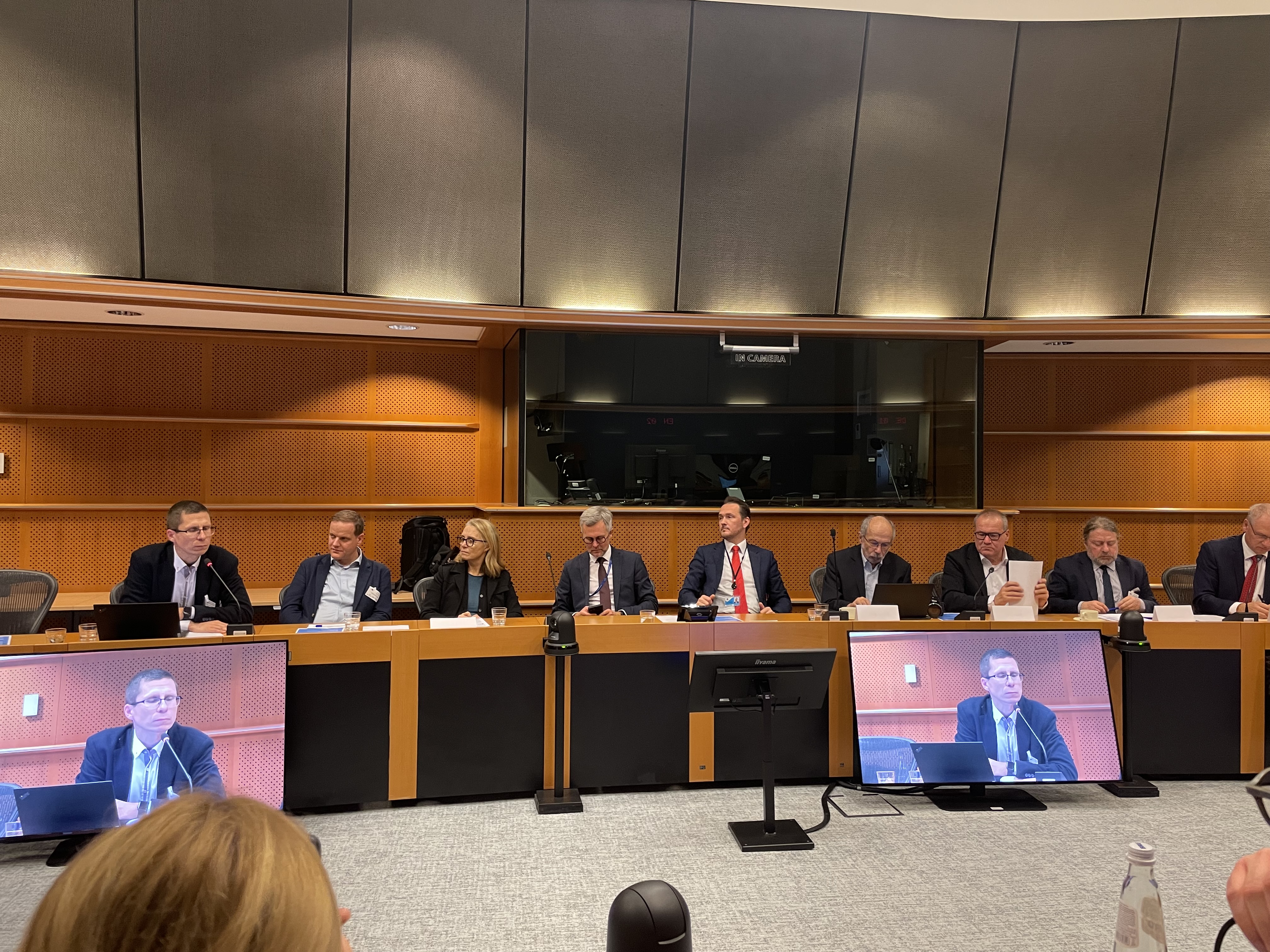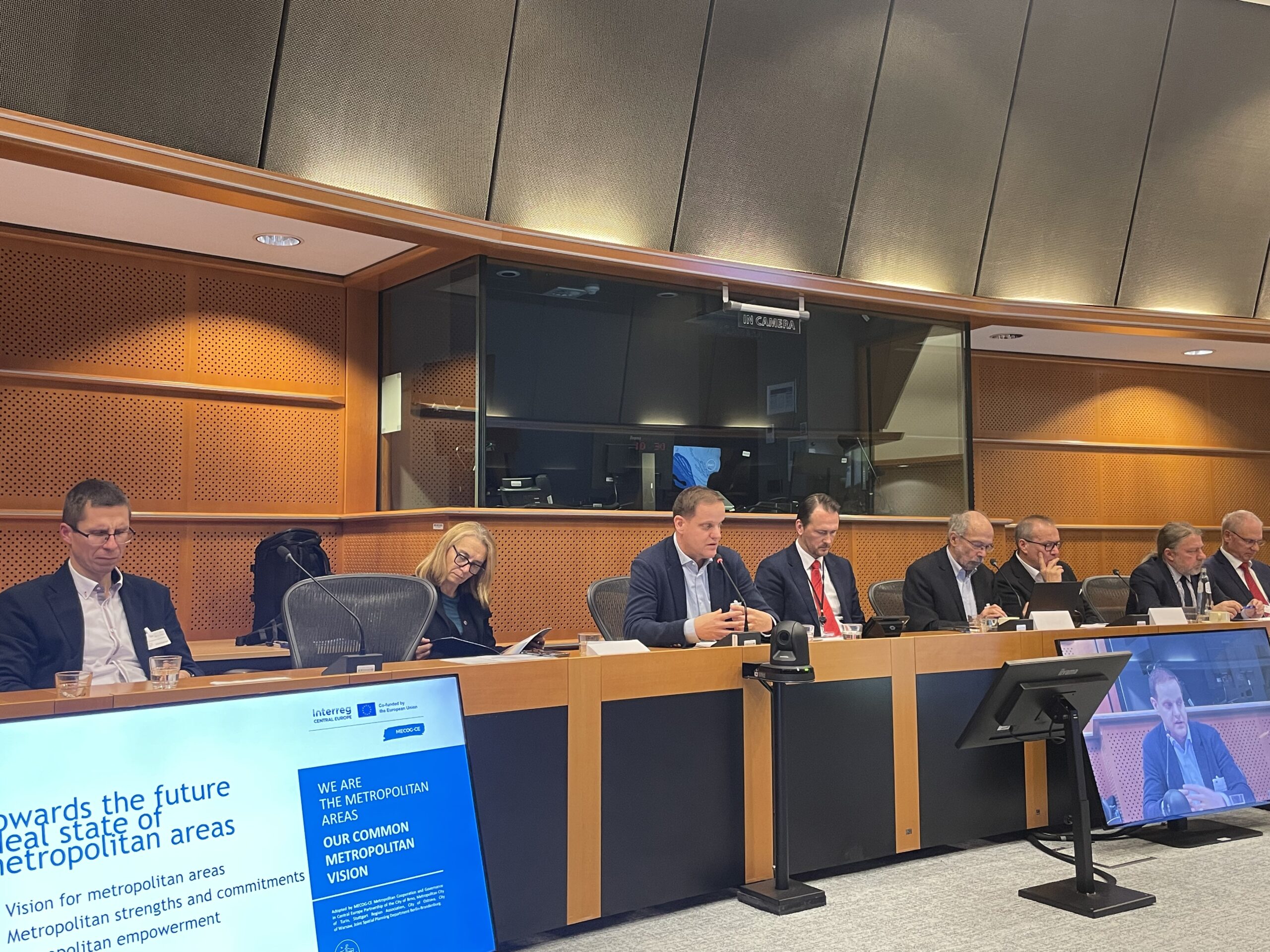The strong interest in the topic was reflected in the high number of participants, with around 70 attendees, including stakeholders joining both in person and online. From the very beginning, the seminar highlighted a clear message: metropolitan areas are among the most powerful drivers of growth, innovation and prosperity in the European Union, yet their potential remains insufficiently recognised in current European policies and funding frameworks.
In the opening remarks, MEPs Ondřej Krutílek and Hanna Gronkiewicz-Waltz, together with Juraj Droba, member of the European Committee of the Regions, chairman of the Bratislava self-governing Region and Martin Příborský, deputy member of European Committee of the Regions, member of the Brno City Assembly responsible for strategic development and metropolitan cooperation, underlined that metropolitan areas are not only centres of economic activity, but also key spaces where policies, solutions and strategic partnerships are created. This is particularly important at a time when the EU is facing significant geopolitical, economic and social challenges. Concrete data illustrate their significance: around 60 % of EU citizens live in metropolitan areas, 80 % of newcomers settle there, and approximately 70 % of the Union’s GDP is generated within these areas. Metropolitan regions are also global hubs of research, technological development and social innovation, playing a vital role in shaping Europe’s future. Their importance is also highlighted in the Common Metropolitan Vision.

A keynote presentation by Iván Tosics from the Metropolitan Research Institute further elaborated on the shift “From local engines to European impact: Why metropolitan areas matter,” demonstrating how metropolitan areas extend their influence far beyond administrative borders of the core cities and contribute directly to the EU’s strategic objectives, including competitiveness, climate transition, innovation capacity and social cohesion. His speech emphasized the need to integrate metropolitan dimension into various EU policies.
The subsequent high-level panel discussion brought together representatives from Eurocities, METREX – The Network of European Metropolitan Regions and Areas, the Brno Metropolitan Area, the Stuttgart Region and the Warsaw Metropolis Association, alongside with experts in metropolitan governance. The debate provided policy-oriented insights into how metropolitan areas can better contribute to Europe’s future development and how the forthcoming Multiannual Financial Framework and Cohesion Policy should evolve to reflect their strategic role. Panellists agreed that stronger metropolitan governance, enhanced cooperation across administrative boundaries and more tailored policy instruments are essential to fully unlock their potential.

A specific focus was placed on the need for coordinated support across all levels of governance. This includes securing stable and sufficient funding for metropolitan initiatives, allowing more flexible use of financial resources, and ensuring that metropolitan areas are explicitly acknowledged in EU policy design. Speakers also highlighted the importance of returning to a clearly defined share of the European Regional Development Fund dedicated to Sustainable Urban Development, as applied in previous programming periods.
The seminar also featured a presentation on the MECOG-CE project by František Kubeš from the City of Brno. The project was introduced as a practical example of how metropolitan cooperation and governance can be strengthened across Central Europe, fostering better coordination, knowledge exchange and joint problem-solving among metropolitan areas. More about the project and its outcomes can be found here.
The seminar concluded with a strong call for increased recognition of local and metropolitan authorities, whose role in implementing EU strategies is essential. Beyond the formal acknowledgement, metropolitan areas must be equipped with the necessary tools, resources and political voice to effectively fulfil their role. As debates on the upcoming Multiannual Financial Framework and Cohesion Policy continue, it is essential that the strategic importance of metropolitan areas is more clearly reflected in future EU policies and funding mechanisms. Strengthening metropolitan governance therefore represents a crucial investment in Europe’s long-term competitiveness, resilience and sustainable development.
